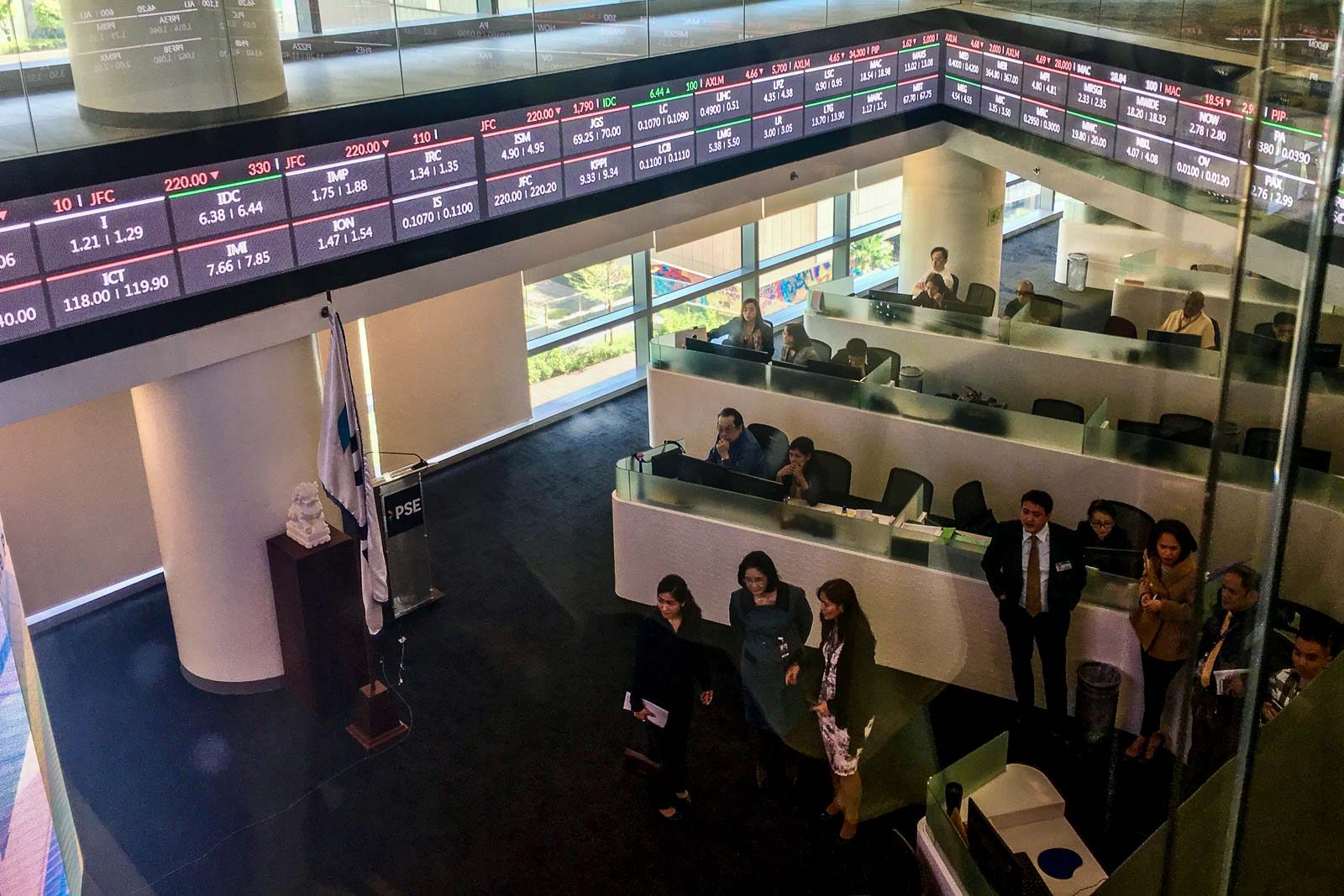SUMMARY
This is AI generated summarization, which may have errors. For context, always refer to the full article.

MANILA, Philippines – The stock market can offer spectacular returns – if you do things right.
Consider this: from January 2010 to January 2022, the stock market rose in value by almost 150%, or an annual return of 12.44%. That means if you invested P100,000 in January 2010, you would have nearly P250,000 after 12 years, essentially just by waiting. Keep in mind too that this includes the huge swings caused by the pandemic. Without that, you might have earned even more.
But for beginning investors, the market can be an intimidating mess, filled with colorful candlesticks and arcane percentages. It doesn’t have to be that way. The stock market can be a way for everyone to grow wealth.
Let’s explain how it works.
What is the stock market?
You first need to understand what stocks are. Simply put, a stock represents ownership in a company. If you want to own stocks of a company, you would buy shares, the unit in which stocks are denominated. Once you buy shares of stock, your ownership stake in a company would depend on the portion of total shares you own.
For instance, you might want to buy 300 shares of ABC Company’s stock. If ABC Company’s stock was divided into 1,000 shares, then you would own 30% of the company.
But where would you get shares of stock in the first place? The stock market. At its core, the stock market is simply a way to offer and trade shares of stock.
The stock market is actually made up of many parts, as opposed to being one central platform. In advanced economies like the United States, the stock market is made up of different stock exchanges, each with their own set of stocks for trading. These stock exchanges serve as the organized “place” where people buy and sell stocks.

In the Philippines however, the stock market is comprised of a single stock exchange – the Philippine Stock Exchange (PSE). As of the moment, it houses just 287 companies across 23 subsectors. If you want your company to go public, this is the place to go.
Now, if you want to participate in our local stock exchange, you can’t exactly transact with the PSE directly. Instead, you would need to go through an intermediary called a stockbroker. These firms host the online platforms that the average investor usually uses to buy and sell stocks.
Why participate in the stock market?
Now that we get the basics, it’s time to understand why companies and investors engage in the stock market. Let’s continue with our example of ABC Company.
Imagine that things have been going pretty well for ABC Company, and they want to expand operations, maybe set up new stores and hire new staff. They could raise this money through debt, like borrowing from a bank, but this comes with heavy interest fees and risks.
On the other hand, ABC Company could “go public,” or have their shares listed in the stock market. This opens up the company to investments from the general public, who can then buy their shares. (READ: Know your stock market lingo)
In exchange for their funds, the investors become partial owners of the company. Consequently, they get voting rights on important operational matters based on how many shares they have. They also receive periodic disclosures from ABC Company on how the business is faring.
Of course, as an investor, you would also expect some form of income. There are two main ways to earn from stocks: dividends and capital gains.
Let’s start with dividends. As ABC Company starts raking in a profit, it may start distributing some of its yearly income to investors in the form of dividends. Companies can issue dividends in cash or in stock, which are given in proportion to how many shares an investor owns.
Still, not every publicly-listed company declares dividends. Even for those that do, there’s often no assurance of regular declarations.
Instead, most investors seek capital gains. Here’s how that works: imagine that ABC Company continues growing, and more and more investors want to buy shares of the business. The ensuing demand would raise share prices. As an early investor, you’ll suddenly find that other investors would be willing to pay you a much higher price for your shares than you initially bought them for. This rise in share value is called capital gains.
But remember, there is no secret formula to predict whether a stock’s price will rise in value. A weak economy or events like the pandemic may affect the price of even seemingly successful companies. Holding multiple stocks – called diversifying your stock portfolio – also helps reduce the risk of volatility.
How do I invest in the stock market?
Still set to invest in the stock market? Great! Here are some first steps:
- Make a plan. Decide whether you’re seeking to earn from dividends or capital gains, and whether to invest long-term or trade short-term.
- Do your due diligence. Research on the company, or companies, that you’re planning to invest in. Study their financial statements, disclosures, and strategies. If possible, conduct fundamental and technical analysis.
- Assess the company’s current price. Good investing is just as much choosing a fundamentally sound company, and knowing when prices offer a good entry or exit point.
- Open a brokerage account. Some banks have affiliated stock brokerage services that link to your bank account. Other independent brokers allow you to open an account online.
- Begin investing. Once your brokerage account is set up, you can already trade stocks through it. Ensure that whatever put in is an amount you would be willing to risk, as the stock market offers no guaranteed returns.
If investing in individual stocks sounds too risky for you, you might consider investing in mutual funds or unit investment trust funds instead. Rather than being tied to a single stock, these equity funds manage a collection of stocks that are tailored to your specific risk preference, be it aggressive, moderate, or conservative.
And if you’re in doubt, it’s best to consult an expert, like a financial advisor. – Rappler.com
Add a comment
How does this make you feel?






![[ANALYSIS] Time to take the contrarian side](https://www.rappler.com/tachyon/2024/07/thought-leaders-time-to-take-the-contrarian-side-072520224.jpg?resize=257%2C257&crop=452px%2C0px%2C1080px%2C1080px)
![[ANALYSIS] Every inch of the market’s climb is a battle now but may soon prove better](https://www.rappler.com/tachyon/2024/07/thought-leaders-market-climb-battle.jpg?resize=257%2C257&crop=324px%2C0px%2C720px%2C720px)
![[ANALYSIS] The West Philippine Sea dispute and the stock market’s performance](https://www.rappler.com/tachyon/2024/06/thought-leaders-west-ph-sea-dispute-and-market-performance.jpg?resize=257%2C257&crop=134px%2C0px%2C720px%2C720px)

There are no comments yet. Add your comment to start the conversation.